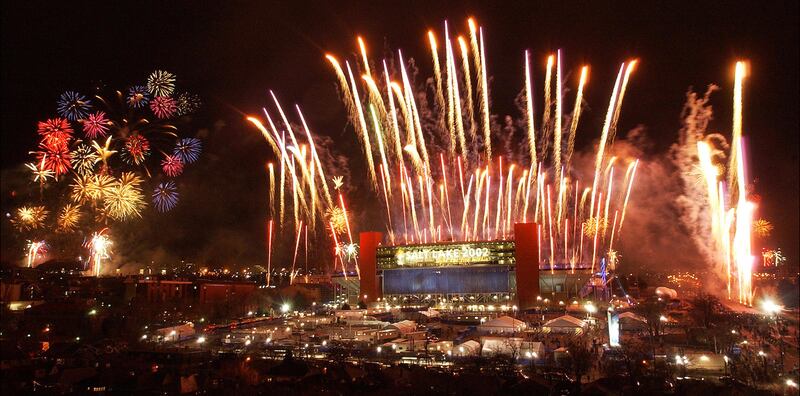A new Deseret News/Hinckley Institute of Politics poll showing nearly 80% of Utahns back the bid to host another Winter Games is making news on several Olympic news outlets covering the three-way race between Salt Lake City; Sapporo, Japan; and Vancouver, Canada.
- “If Salt Lake City, Utah, doesn’t win their bid to host the 2030 or 2034 Winter Olympics, it won’t be for a lack of support,” Around The Rings, founded decades ago in Atlanta and now based in Buenos Aires, Argentina, declared in a story about the poll posted Tuesday.
- “That’s impressive,” The Sports Examiner out of California said Wednesday in its daily roundup of Olympic news, adding the level of approval among Utahns for bidding again “also separates Salt Lake City from the tepid bid support in Sapporo (JPN: 52-57% in March) and Vancouver (54% in July).”
- “Utah’s support of the Games continues far above that of rivals looking to host in 2030, and most other recent bids to host the massive international quadrennial event,” the Canadian-based website GamesBids.com reported Tuesday, noting backing had dropped since previous surveys several years ago but was “still strong.”
The new Deseret News and the University of Utah’s Hinckley Institute of Politics poll found 79% of Utahns approve of hosting another Winter Games and just 16% disapprove, and 5% don’t know. The poll, conducted by Dan Jones & Associates July 13-18 of 801 registered Utah voters, has a margin of error of plus or minus 3.46 percentage points.
The results were hailed by Fraser Bullock, president and CEO of the Salt Lake City-Utah Committee for the Games as “incredibly strong,” especially given the impact of the COVID-19 pandemic on recent Olympics, including the yearlong delay of the 2020 Summer Games in Tokyo.
Past polling by the state’s Olympic Exploratory Committee put support at 89% in 2017 and a U.S. Olympic and Paralympic Committee poll measured it at 82% a year later, shortly before Salt Lake City was chosen to bid on behalf of the United States.
Utah is bidding for the 2030 or 2034 Winter Games, but Utahns will likely have to wait several years before finding out if they’re going to have a chance to repeat the success of the 2002 Winter Games, summed up as “superb” by the late International Olympic Committee President Jacques Rogge during the Closing Ceremonies.
The IOC Executive Committee is set to advance its pick to host in 2030 to the contract negotiation stage in December, but Salt Lake City — once viewed as a frontrunner alongside Sapporo — is increasingly seen as a long shot.
With Los Angeles hosting the 2028 Summer Games, there were already issues with selecting another American city for a Winter Games just 18 months later. The IOC has also raised concerns about some of the U.S. response to Beijing hosting the 2022 Winter Games earlier this year despite China’s human rights record.
And while there had been speculation that cities would be identified for both the 2030 and 2034 Winter Games in December, IOC President Thomas Bach recently said there would be no dual bid award so whoever succeeds him after his term ends in 2025 can have a say on who gets 2034.
What impact the poll results have on the IOC remains to be seen, said Chris Karpowitz, co-director of Brigham Young University’s Center for the Study of Elections and Democracy, especially since support has been high in the past.
“It seems like the IOC has some broader geopolitical concerns in mind,” Karpowitz said. “It doesn’t hurt to see that Utahns support (the bid) but I’m not sure it speaks directly to the sorts of larger issues that seem to be blunting the momentum for Salt Lake in 2030. I’m not sure it breaks through those kinds of concerns right now.”



